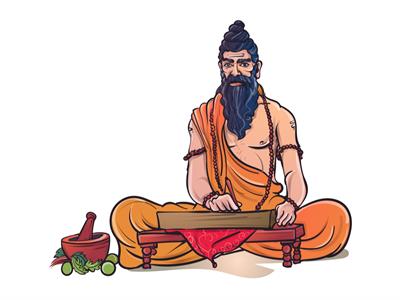
PUMPA - SMART LEARNING
எங்கள் ஆசிரியர்களுடன் 1-ஆன்-1 ஆலோசனை நேரத்தைப் பெறுங்கள். டாப்பர் ஆவதற்கு நாங்கள் பயிற்சி அளிப்போம்
Book Free Demo1. The only woman in the world who has scaled Mt Everest twice was born in a society where the birth of a son was regarded as a blessing, and a daughter, though not considered a curse, was not generally welcome. When her mother was expecting Santosh, a travelling ‘holy man’, giving her his blessing, assumed that she wanted a son. But, to everyone’s surprise, the unborn child’s grandmother, who was standing close by, told him that they did not want a son. The ‘holy man’ was also surprised! Nevertheless, he gave the requested blessing ... and as destiny would have it, the blessing seemed to work. Santosh was born the sixth child in a family with five sons, a sister to five brothers. She was born in the small village of Joniyawas of Rewari District in Haryana.
2. The girl was given the name ‘Santosh’, which means contentment. But Santosh was not always content with her place in a traditional way of life. She began living life on her own terms from the start. Where other girls wore traditional Indian dresses, Santosh preferred shorts. Looking back, she says now, “From the very beginning I was quite determined that if I chose a correct and a rational path, the others around me had to change, not me.”
Explanation:
Santosh Yadav was born on 10 October 1967 in the small village called Joniyawas, which belonged to the Rewari district in Haryana. She is the first woman in the world to have climbed Mount Everest twice. Although she had achieved such great things in life, she had her own fair share of struggles growing up and following her passion. In general, the society lays out separate rules for women in terms of education or career. Many people, especially in Indian villages, consider it unwelcoming and as a burden when a girl is born into the family. The birth of a son is considered auspicious and people welcome him with much joy. Santosh's birth had a different take, even though she was from a village. When her mother was carrying her in the womb, she was visited by a holy man. In the early days, holy men who had sacrificed all materialistic joys of the world sought God by visiting temples and holy places. They were believed to have special powers and people respected them. The holy man who visited Santosh's mother assumed that they wanted a son, as he must have experienced a lot of families asking him to bless them for a son.

Holy man
Santosh's grandmother surprised everyone when she assertively stated that she wanted the holy man to bless the mother to have a daughter. This shows that her grandmother was very progressive and did not go by the standard beliefs of the village. As destiny would have it, Santosh was born in the family just as if the holy man's blessing had come true. When people truly wish for something to happen and believe in it, it manifests in the form of a miracle or destiny. She was born as the sixth child in a family that had five sons.
Santosh, being born as the sixth daughter after five sons, was considered as a satisfying gift from God. She was named 'Santosh', which means contentment or happiness. She was a rebel from a very young age. She did not follow the conventional practices set by the society for girls her age. She aimed to break all rigid norms. She never settled for the traditional ways of life. She lived life on her own terms. When girls her age wore traditional Indian dress, she wore shorts. This was defying the stereotypes created against girls. The Indian society lays out different rules for girls and boys. Girls are easily judged by the clothes they wear, the way they talk etc. Santosh did not believe that she was in any way different and chose to do what she wanted. She very boldly states that if people had a problem with what she did, then it is they who had to change, and that she wanted to go on a correct, rational path in life.

Girl in shorts
Meaning of difficult words:
| S.No | Words | Meaning |
1 | Scaled | To climb by |
2 | Traditional | A long established way of living |
3 | Stereotypical | Pre conceived ideas about a person/thing |
4 | Conventional | Following already established rules |
5 | Rational | Based on logic |
6 | Contentment | Satisfaction combined with gratitude |
7 | Curse | To invoke hurt on someone |
Reference:
National Council of Educational Research and Training (2006). Beehive. Reach for the Top (pp.99-109). Published at the Publication Division by the Secretary, National Council of Educational Research and Training, Sri Aurobindo Marg, New Delhi.